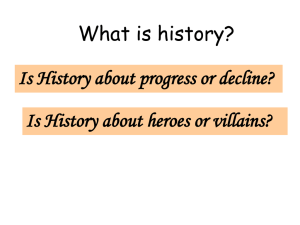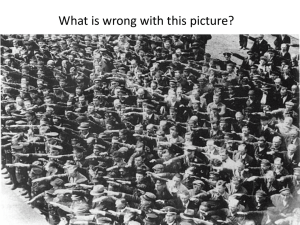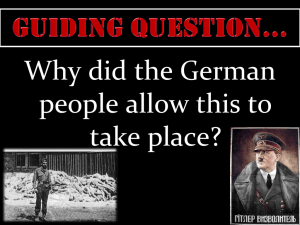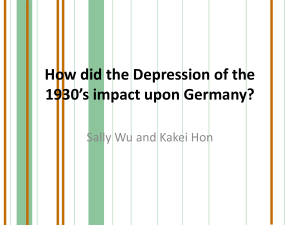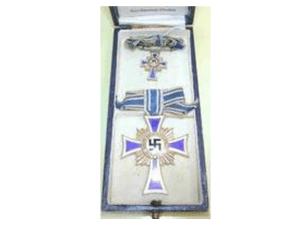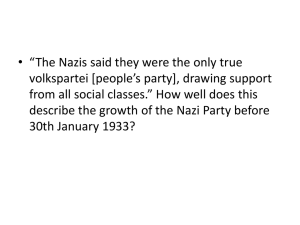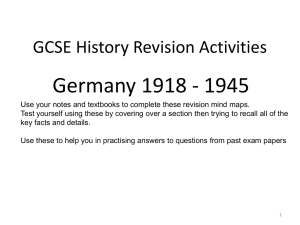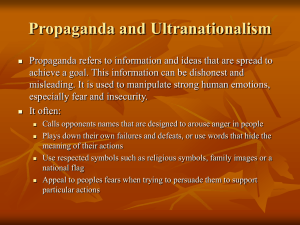How did the Nazis change their tactics between 1924 and
advertisement
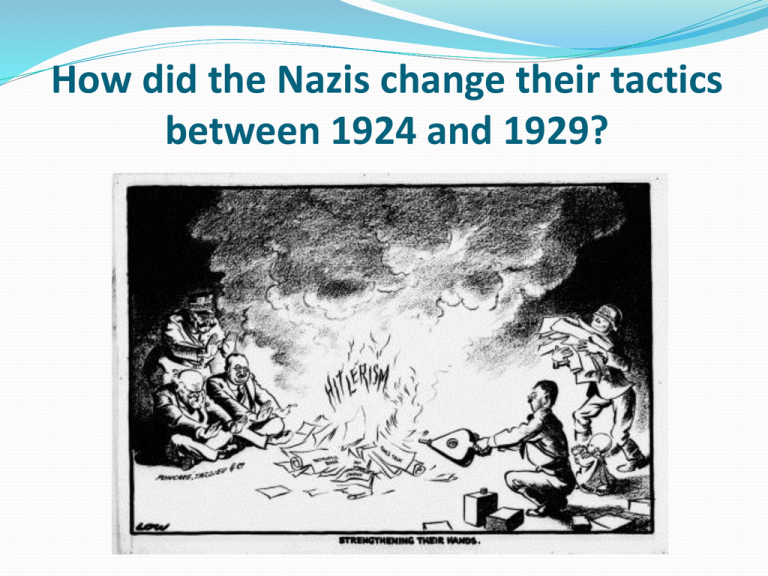
How did the Nazis change their tactics between 1924 and 1929? Learning objective – to understand how the Nazi Party developed between 1924 and 1929. I can describe the different ways the Nazi Party changed between 1924 and 1929. Grade D I can explain and make links between the different ways the Nazi Party changed between 1924 and 1929. Grade B I can explain the links between and the importance of the different ways the Nazi Party changed between 1924 and 1929. Grade A and A* Starter Pick two words from the word cloud. When they appear in the following presentation, note what the word means in relation to the development of the Nazi Party between 1924 and 1929. December 1924 – Hitler is released In December 1924, Hitler was released from prison after serving nine months of his five year sentence. At this point, the Nazi Party and their newspaper, Völkischer Beobachter, was banned. Also the Nazi Party – under a different name - performed badly in the two 1924 elections when their number of seats in the Reichstag fell to just 14. February 1925 – Nazi Party is relaunched In February 1925, the ban on the Nazi Party was lifted and Hitler decides to relaunch the party in response to the poor electoral performance. A massive rally is held in a Munich Beer Hall to celebrate the party’s relaunch. Brown shirts becomes the official party uniform. The Swastika was formally adopted as the party emblem. Its colours taken from the German flag under the Kaiser. Mein Kampf is published Alongside the relaunch of the Nazi Party in 1925, Mein Kampf is published. Mein Kampf [My Struggle] a mixture of autobiography and a vision for Germany quickly became a best seller due to Hitler’s national fame. Reorganising the Nazi Party In 1926, the Nazi Party began to develop a series of interest groups to appeal to selected areas of society. Such groups as the Nazi Students’ League, Law Officers League and Teachers’ League were formed to organise support in specific areas of society. Winning over the working classes Linked to the interest groups, the Nazis tried to win over the classes in Germany by projecting different messages. For the working classes, the Nazis held many public meetings and discovered that their anti-Jewish messages were the most popular with the working classes. In these areas, anti-Jewish propaganda increased. Winning over the middle classes However, by 1928 the Nazis felt that support within the working classes was not strong enough. They decided that their key supporters were from the middle classes and decided to change their message to attract them. Increased membership Between 1924 and 1929, Nazi Party membership rose from 27,000 to 108,000. This was, in part, due to the centralisation of the party with a Head Office in Munich. However, this was not reflected in the Reichstag, where in 1928, the Nazis were reduced to just 12 seats, much less than their rivals. Effective public meetings Public meetings were crucial in gaining support. The Nazi Party were the only political group in Germany that ran evening classes to train members in public speaking skills. The Nazis also arranged many visiting speakers at local level creating a network of effective local branches of the Nazi party. When they discovered a visiting speaker’s message was particularly popular they would repeat it again and again. Revisit the starter With the person next to you, share the two words what you have chosen from the word cloud and state how each word in important to the development of the Nazi Party in the 1920s. Main task See how many links you can make between the different changes made within the Nazi Party in the 1920s. Can you use detailed evidence to support your links? Plenary What are the 5 most important changes to the Nazi Party in the 1920s? Explain why you have chosen three of them. Which one change had the biggest impact on the Nazi Party?
